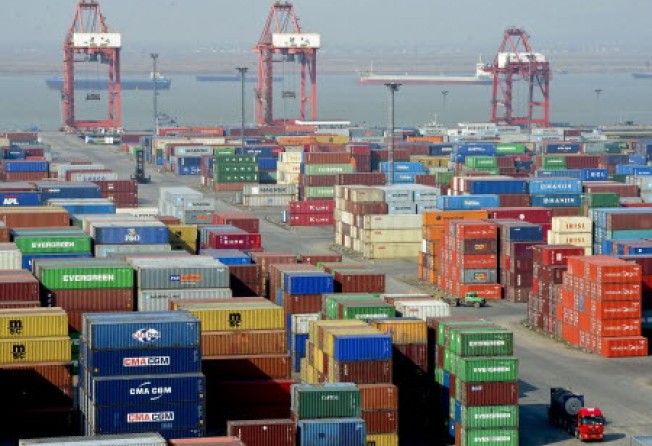Turning 20 marks time for the WTO to grow up
The WTO needs to move away from the “them and us” focus of many of its rules. The virtual economy, investment and perhaps competition policy are just some of the issues that could receive closer attention

Many would be tempted to say that the World Trade Organisation can only mark, not celebrate, its 20th anniversary this year. Shot negotiating deadlines, dashed hopes and endless reiterations of entrenched positions have punctuated the WTO’s two decades of existence with a tedium that has tried even the institution’s strongest supporters.
A succession of anni horribiles has pundits wondering “if” the WTO’s multilateral goals can be reached, rather than “when”. Yet no government, or serious commentator for that matter, has suggested that a moribund WTO is an acceptable new normal.
The gap between words and deeds has persisted for far too long. One can only hope that repeated assertions of fealty to a system based on universality and inclusiveness is stubborn, if frustrated, realism and not a cynical game of blame and responsibility avoidance.
But to deny the WTO a record of achievement is much too harsh a judgment. For years the institution has tried to sell itself on erroneous grounds instead of playing to its strengths.
The greatest achievement of the WTO is not trade liberalisation. That record is restricted largely to a coordinating role in reducing tariffs on manufactured goods among industrial countries over several decades after the second world war.
Limited progress has been made in agriculture and services. And the WTO is not the chosen venue for developing and emerging economies to liberalise. The considerable degree of trade openness embraced by these countries in recent decades is understated and uncommitted in the WTO.
If 2015 is not going to add to the musty sense of WTO decline, progress is needed on at least three fronts.
First, while not excluding itself from trade liberalisation, the WTO should acknowledge more honestly its limitations in that field. It needs to focus more on making and enforcing rules, where it has been far more successful. Moreover, it is there where the WTO can make its unique contribution as a multilateral institution. Unlike trade liberalisation, global rule-making cannot be achieved outside a multilateral setting.
The institution’s important gift to global order and predictability through its work as a rule keeper is usually below the radar. Nearly 20 WTO committees and working parties meet regularly, without ceremony or fanfare, to work through the minutiae of trade policy.
These committees do many things. They provide a forum for transparency and non-litigious exchange. Some committees also play compliance monitoring and review roles. Governments might use them to hint at the possibility of future litigation where they are unhappy with a partner’s policy stance. They help shape opinion and advance mutual understanding.
Their work is the lubricant of the system, but rarely considered worthy of media coverage. The WTO should make a lot more of this contribution to trade governance and change perceptions of what it actually does.
Second, despite the multiple pronouncements of outside observers that the Doha Round is dead and the WTO should move on, governments are hard-wired not to make public acknowledgements of failure. Capitulation would weaken the institution and further corrode credibility.
Something has to be done to close the Doha Round, albeit in more modest terms than were initially envisaged in the shadow of the September 11, 2001 terror attacks in the United States. This is the greatest immediate challenge.
Perhaps the Doha negotiations could be facilitated by engagement on a longer view aimed at updating and completing the content of the WTO’s work. This is the third challenge for 2015. In a world deeply integrated through globalised production and consumption, the WTO needs to move away from the “them and us” focus of many of its rules. The virtual economy, investment and perhaps competition policy are just some of the issues that could receive closer attention.
Progress or the lack of it on these matters in the WTO’s 20th year will shape the institution’s fortunes for the next decade. The WTO will hold its 10th ministerial summit in Nairobi, Kenya, in mid-December. The venue is symbolic of change and the future.
Will the institution, and above all the governments that populate it, live up to the challenge of looking ahead? Much needs to be done this year for that to happen.
Patrick Low is vice-president of research at Fung Global Institute